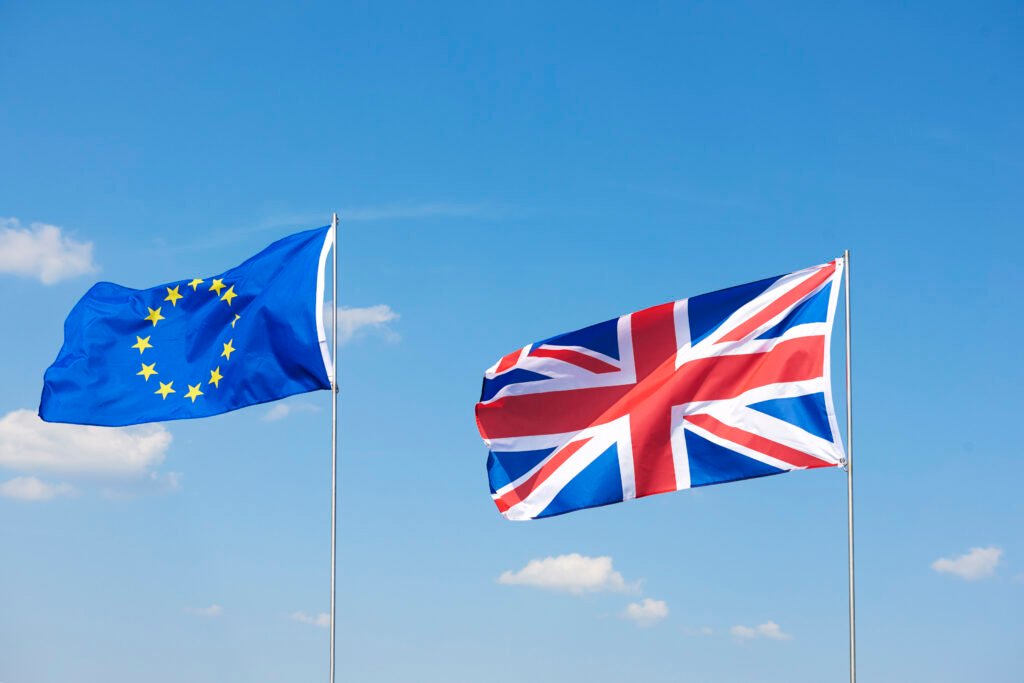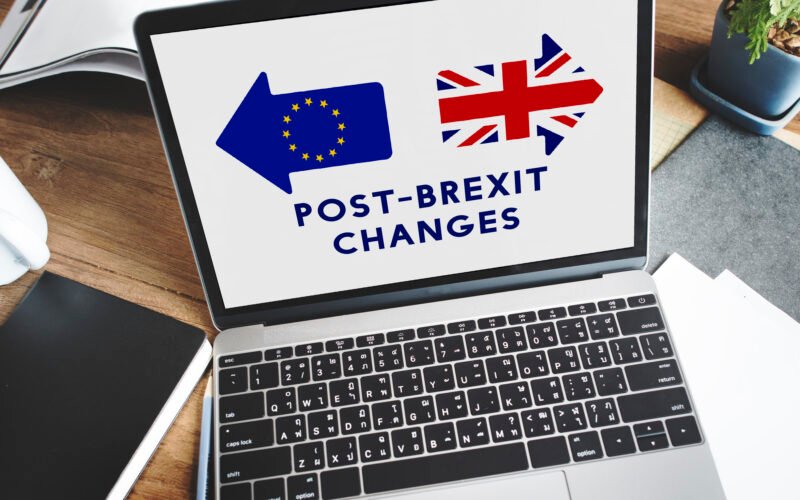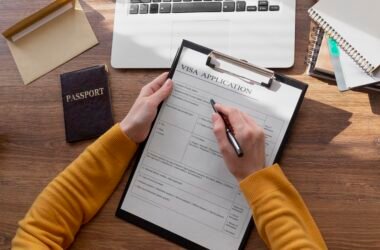Britische Staatsangehörige in Malta müssen ein strukturiertes Verfahren zur Beantragung ihres Aufenthaltsstatus durchlaufen, je nachdem, ob sie vor oder nach dem 1. Januar 2021 im Land ansässig waren. Für diejenigen, die vor dem Brexit eingereist sind, ist das Verfahren einfacher, da sie einen neuen Aufenthaltsstatus beantragen müssen, um ihre Rechte zu behalten. Diejenigen, die nach dem Brexit eine Aufenthaltsgenehmigung beantragen, werden nun als Drittstaatsangehörige eingestuft und müssen spezielle Verfahren für einen legalen Aufenthalt durchlaufen.

Britische Staatsangehörige in Malta - vor dem Brexit
Britische Staatsangehörige in Malta hatten vor dem Brexit die Möglichkeit, im Rahmen des Austrittsabkommens einen neuen Aufenthaltsstatus zu beantragen. Dieses Programm sollte sicherstellen, dass britische Staatsangehörige und ihre Familienangehörigen weiterhin das Recht haben, in Malta zu leben, zu arbeiten und Sozialleistungen in Anspruch zu nehmen. Das Antragsverfahren musste bis zum 30. Juni 2021 für alle Personen abgeschlossen sein, die vor dem offiziellen Austritt des Vereinigten Königreichs aus der EU in Malta wohnten.
Sobald die Genehmigung erteilt ist, erhalten britische Staatsangehörige eine neue Aufenthaltsgenehmigung, mit der sie sich zehn Jahre lang in Malta aufhalten können. Dieser Aufenthaltsstatus ähnelt dem von EU-Bürgern, einschließlich des Rechts auf Zugang zu medizinischer Versorgung, sozialen Diensten und anderen Ansprüchen, die für maltesische Bürger gelten. Diejenigen, die die Frist verpasst oder es versäumt haben, eine Aufenthaltsgenehmigung zu beantragen, müssen mit komplizierteren Verfahren rechnen, wenn sie im Land bleiben wollen.
Britische Staatsangehörige ziehen nach dem Brexit nach Malta
Bürger des Vereinigten Königreichs, die nach dem Brexit nach Malta ziehen möchten, müssen sich als Drittstaatsangehörige bewerben. Das bedeutet, dass sie das Standardverfahren für die Beantragung einer Aufenthaltsgenehmigung durchlaufen müssen, das die Erfüllung bestimmter finanzieller und eigentumsrechtlicher Anforderungen beinhaltet. Einer der beliebtesten Wege für britische Staatsangehörige ist die Aufenthaltsgenehmigung Malta Programm für Daueraufenthalt (MPRP)die das Recht bietet, in Malta zu leben, mit der Möglichkeit, sich dauerhaft niederzulassen.
Das Malta Permanent Residency Programme (MPRP)
Das Programm für den ständigen Aufenthalt in Malta (MPRP) ist eine der attraktivsten Optionen für britische Staatsangehörige nach dem Brexit. Das Programm ermöglicht es Antragstellern und ihren Familien, dauerhaft in Malta zu leben, wenn sie bestimmte Kriterien erfüllen. Dazu gehören:
- Finanzielle Anforderungen: Die Antragsteller müssen eine einmalige, nicht erstattungsfähige Gebühr in Höhe von 98.000 € für die Anmietung einer Immobilie bzw. 68.000 € für den Kauf einer Immobilie entrichten. Die Mindestkaufpreise für Immobilien liegen bei 300.000 EUR für Immobilien auf Gozo oder im Süden Maltas und bei 350.000 EUR für Immobilien im Norden und in der Mitte Maltas.
- Eigenschaftsanforderungen: Die Antragsteller können eine Immobilie entweder mieten oder kaufen. Bei Mietobjekten beträgt die jährliche Mindestmiete 10.000 € für Gozo und den Süden Maltas bzw. 12.000 € für den Norden und das Zentrum. Für gekaufte Immobilien muss der Mindestkaufpreis den oben genannten Schwellenwerten entsprechen.
- Spende: Es wird eine Mindestspende von 2.000 € an eine lokale NRO verlangt.
- Zusätzliche Anforderungen: Die Antragsteller müssen außerdem ein Vermögen von mehr als 500.000 € nachweisen, davon 150.000 € in Form von liquiden Mitteln.
Nach der Genehmigung erhalten die Antragsteller eine unbefristete Aufenthaltsgenehmigung mit dem Recht, sich auf unbegrenzte Zeit in Malta aufzuhalten. Die Aufenthaltsgenehmigung ist nicht an eine Beschäftigung oder Einkommensquelle gebunden, was sie zu einer flexiblen Option für diejenigen macht, die langfristig in Malta leben möchten.
Globales Aufenthaltsprogramm (GRP)
Eine weitere beliebte Option ist die Globales Aufenthaltsprogramm (GRP)Das Programm bietet britischen Staatsangehörigen in Malta einen besonderen Steuerstatus während ihres Aufenthalts in Malta. Dieses Programm bietet:
- Finanzieller Beitrag: Die Antragsteller zahlen eine nicht erstattungsfähige staatliche Gebühr von 6.000 €. Außerdem müssen sie eine qualifizierte Immobilie entweder mieten oder kaufen, wobei die Mietpreise je nach Standort zwischen 8.750 und 9.600 EUR pro Jahr liegen, bzw. Immobilien ab 220.000 bis 275.000 EUR kaufen.
- Steuerliche Vorteile: Das GRP bietet ein wettbewerbsfähiges Steuersystem mit einem pauschalen Steuersatz von 15% auf ausländische Einkünfte, die nach Malta überwiesen werden, und einer jährlichen Mindeststeuerzahlung von 15.000 €. Antragsteller profitieren auch von der Steuerfreiheit für ausländische Einkünfte, die nicht nach Malta überwiesen werden.
- Einbeziehung der Familie: Dieses Programm ermöglicht es den Antragstellern, Familienmitglieder wie Kinder, Eltern und sogar Großeltern in denselben Antrag aufzunehmen.
Beschäftigung in Malta für britische Staatsangehörige nach dem Brexit
Nach dem Brexit werden britische Staatsangehörige bei der Arbeitssuche in Malta als Drittstaatsangehörige (TCN) eingestuft. Für diese Einstufung müssen sie eine Arbeitserlaubnis erhalten, die als Einzelgenehmigungdie über folgende Adresse eingereicht werden muss Identià, der für die Bearbeitung von Aufenthaltsgenehmigungen zuständigen Behörde, die das Recht gewährt, sich in Malta aufzuhalten und zu arbeiten. Zur Beantragung der Einzelgenehmigungmüssen die Bewerber zunächst einen unterzeichneten Arbeitsvertrag mit einem maltesischen Arbeitgeber vorweisen.
Das Antragsverfahren für die Einzelgenehmigung erfolgt online über die benanntes Portal für Arbeitsgenehmigungen. Sobald der Antrag genehmigt ist, erhält der Antragsteller eine Schreiben zur grundsätzlichen Genehmigungdamit sie einen biometrischen Termin vereinbaren können. Nach Abschluss des biometrischen Termins ist die Person berechtigt, eine Beschäftigung bei dem maltesischen Unternehmen aufzunehmen.
Es ist wichtig zu beachten, dass die Antragsteller die Arbeit erst aufnehmen dürfen, wenn sie die Zulassung erhalten haben. Berechtigung zum Arbeiten (blaues Papier). Außerdem sind die Arbeitgeber gesetzlich verpflichtet, eine Engagement-Formular zu Jobs plus am selben Tag, an dem der Arbeitnehmer seine Arbeit aufnimmt.
Statistiken über britische Staatsangehörige in Malta
Jüngsten Statistiken zufolge leben etwa 13.000 britische Staatsangehörige auf Malta, was sie zu einer der größten Expatriate-Gemeinschaften auf der Insel macht. Die britische Bevölkerung in Malta besteht größtenteils aus Rentnern, Fachleuten und Unternehmern, von denen viele durch die günstigen Steueranreize, das mediterrane Klima und die hohe Lebensqualität angezogen werden. Mit dem Brexit könnte sich diese Zahl ändern, da mehr britische Staatsangehörige nach den neuen Regeln eine Aufenthaltsgenehmigung beantragen.
Schlussfolgerung
Für britische Staatsangehörige, die nach Malta ziehen möchten, ist es wichtig, sich zunächst über Aufenthaltsoptionen wie das Malta Permanent Residency Programme (MPRP) oder das Global Residence Programme (GRP) zu informieren und sicherzustellen, dass Sie die finanziellen und immobilienbezogenen Anforderungen erfüllen. Außerdem benötigen Sie eine umfassende Krankenversicherung und müssen, wenn Sie arbeiten wollen, eine Einzelgenehmigung als Drittstaatsangehöriger beantragen. Ziehen Sie in Erwägung, professionelle Hilfe in Anspruch zu nehmen. Unser Team ist hier, um Ihnen zu helfen und Sie mit Leichtigkeit durch die Verfahren für die Aufenthalts- und Arbeitserlaubnis zu führen. Halten Sie sich über alle Änderungen der Einwanderungsbestimmungen nach dem Brexit auf dem Laufenden, um einen nahtlosen Übergang zu gewährleisten.
Lesen Sie weiter:
Arbeitsgenehmigungen für Drittstaatsangehörige: Ein Überblick über Verfahren und Anforderungen
Innovatives Portal der Expatriates Unit in Malta: Vereinfachen Sie Ihre Expat-Reise
Integration in die Gemeinschaft auf Malta: Ein Leitfaden für Expats







